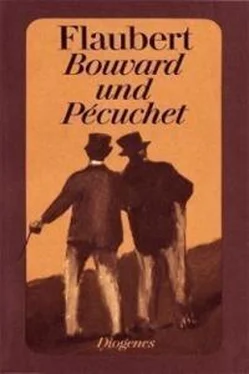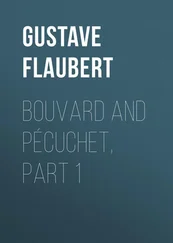Without replying to the argument, M. de Faverges stigmatised those works in which the holiest things are scoffed at: the family, property, marriage.
"Well, and Molière?" said Bouvard.
Marescot, a man of literary taste, retorted that Molière would not pass muster any longer, and was, furthermore, a little overrated.
"Finally," said the count, "Victor Hugo has been pitiless—yes, pitiless—towards Marie Antoinette, by dragging over the hurdle the type of the Queen in the character of Mary Tudor."
"What!" exclaimed Bouvard, "I, an author, I have no right―"
"No, sir, you have no right to show us crime without putting beside it a corrective—without presenting to us a lesson."
Vaucorbeil thought also that art ought to have an object—to aim at the improvement of the masses. "Let us chant science, our discoveries, patriotism," and he broke into admiration of Casimir Delavigne.
Madame Bordin praised the Marquis de Foudras.
The notary replied: "But the language—are you thinking of that?"
"The language? How?"
"He refers to the style," said Pécuchet. "Do you consider his works well written?"
"No doubt, exceedingly interesting."
He shrugged his shoulders, and she blushed at the impertinence.
Madame Bordin had several times attempted to come back to her own business transaction. It was too late to conclude it. She went off on Marescot's arm.
The count distributed his pamphlets, requesting them to hand them round to other people.
Vaucorbeil was leaving, when Pécuchet stopped him.
"You are forgetting me, doctor."
His yellow physiognomy was pitiable, with his moustaches and his black hair, which was hanging down under a silk handkerchief badly fastened.
"Purge yourself," said the doctor. And, giving him two little slaps as if to a child: "Too much nerves, too much artist!"
"No, surely!"
They summed up what they had just heard. The morality of art is contained for every person in that which flatters that person's interests. No one has any love for literature.
After this they turned over the count's pamphlets.
They found in all of a demand for universal suffrage.
"It seems to me," said Pécuchet, "that we shall soon have some squabbling."
For he saw everything in dark colours, perhaps on account of his jaundice.
Chapter VI.
Revolt of the People.
On the morning of the 25th of February, 1848, the news was brought to Chavignolles, by a person who had come from Falaise, that Paris was covered with barricades, and the next day the proclamation of the Republic was posted up outside the mayor's office.
This great event astonished the inhabitants.
But when they learned that the Court of Cassation, the Court of Appeal, the Court of Exchequer, the Chamber of Notaries, the order of advocates, the Council of State, the University, the generals, and M. de la Roche–Jacquelein himself had given promise of their adherence to the provisional government, their breasts began to expand; and, as trees of liberty were planted at Paris, the municipal council decided that they ought to have them at Chavignolles.
Bouvard made an offer of one, his patriotism exulting in the triumph of the people; as for Pécuchet, the fall of royalty confirmed his anticipations so exactly that he must needs be satisfied.
Gorju, obeying them with zeal, removed one of the poplar trees that skirted the meadow above La Butte, and transported it to "the Cows' Pass," at the entrance of the village, the place appointed for the purpose.
Before the hour for the ceremony, all three awaited the procession. They heard a drum beating, and then beheld a silver cross. After this appeared two torches borne by the chanters, then the curé, with stole, surplice, cope, and biretta. Four altar–boys escorted him, a fifth carried the holy–water basin, and in the rear came the sacristan. He got up on the raised edge of the hole in which stood the poplar tree, adorned with tri–coloured ribbons. On the opposite side could be seen the mayor and his two deputies, Beljambe and Marescot; then the principal personages of the district, M. de Faverges, Vaucorbeil, Coulon, the justice of the peace, an old fogy with a sleepy face. Heurtaux wore a foraging–cap, and Alexandre Petit, the new schoolmaster, had put on his frock–coat, a threadbare green garment—his Sunday coat. The firemen, whom Girbal commanded, sword in hand, stood in single file. On the other side shone the white plates of some old shakos of the time of Lafayette—five or six, no more—the National Guard having fallen into desuetude at Chavignolles. Peasants and their wives, workmen from neighbouring factories, and village brats, crowded together in the background; and Placquevent, the keeper, five feet eight inches in height, kept them in check with a look as he walked to and fro with folded arms.
The curé's speech was like that of other priests in similar circumstances. After thundering against kings, he glorified the Republic. "Do we not say 'the republic of letters,' 'the Christian republic'? What more innocent than the one, more beautiful than the other? Jesus Christ formulated our sublime device: the tree of the people was the tree of the Cross. In order that religion may give her fruits, she has need of charity." And, in the name of charity, the ecclesiastic implored his brethren not to commit any disorder; to return home peaceably.
Then he sprinkled the tree while he invoked the blessing of God. "May it grow, and may it recall to us our enfranchisement from all servitude, and that fraternity more bountiful than the shade of its branches. Amen."
Some voices repeated "Amen"; and, after an interval of drum–beating, the clergy, chanting a Te Deum , returned along the road to the church.
Their intervention had produced an excellent effect. The simple saw in it a promise of happiness, the patriotic a mark of deference, a sort of homage rendered to their principles.
Bouvard and Pécuchet thought they should have been thanked for their present, or at least that an allusion should have been made to it; and they unbosomed themselves on the subject to Faverges and the doctor.
What mattered wretched considerations of that sort? Vaucorbeil was delighted with the Revolution; so was the count. He execrated the Orléans family. They would never see them any more! Good–bye to them! All for the people henceforth! And followed by Hurel, his factotum, he went to meet the curé.
Foureau was walking with his head down, between the notary and the innkeeper, irritated by the ceremony, as he was apprehensive of a riot; and instinctively he turned round towards Placquevent, who, together with the captain, gave vent to loud regrets at Girbal's unsatisfactoriness and the sorry appearance of his men.
Some workmen passed along the road singing the "Marseillaise," with Gorju among them brandishing a stick; Petit was escorting them, with fire in his eyes.
"I don't like that!" said Marescot. "They are making a great outcry, and getting too excited."
"Oh, bless my soul!" replied Coulon; "young people must amuse themselves."
Foureau heaved a sigh. "Queer amusement! and then the guillotine at the end of it!" He had visions of the scaffold, and was anticipating horrors.
Chavignolles felt the rebound of the agitation in Paris. The villagers subscribed to the newspapers. Every morning people crowded to the post–office, and the postmistress would not have been able to get herself free from them had it not been for the captain, who sometimes assisted her. Then would follow a chat on the green.
The first violent discussion was on the subject of Poland.
Heurtaux and Bouvard called for its liberation.
M. de Faverges took a different view.
Читать дальше








![Гюстав Флобер - Закат Карфагена [Сборник]](/books/414440/gyustav-flober-zakat-karfagena-sbornik-thumb.webp)


